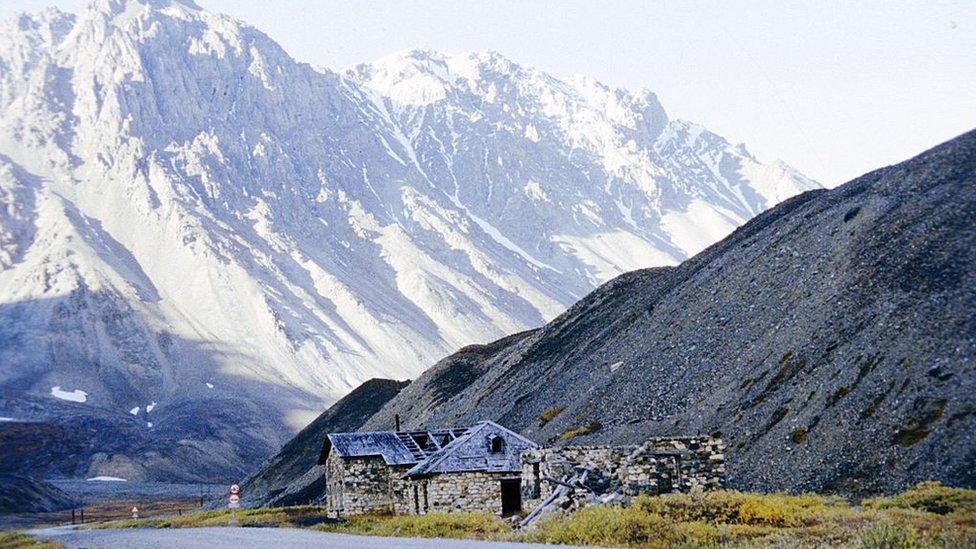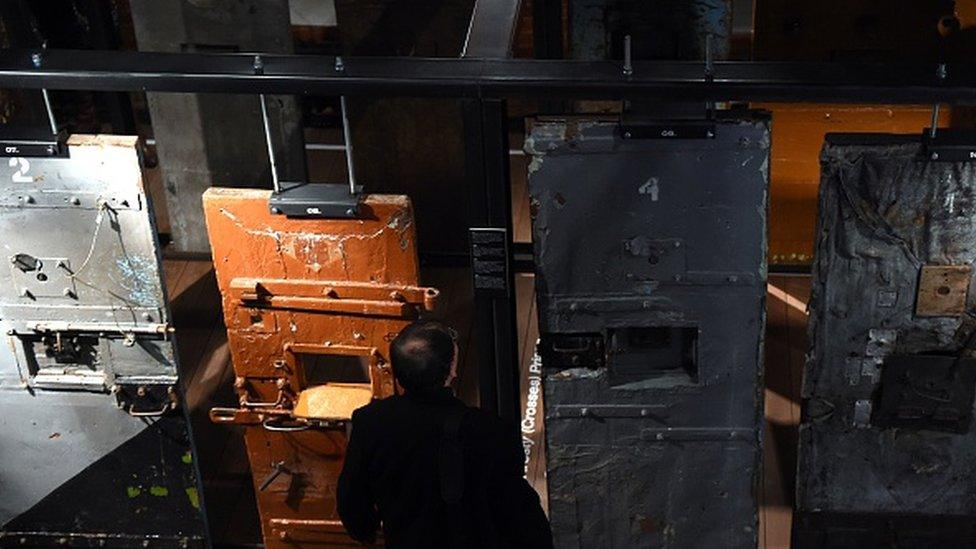Russians row over Gulag memorial garden
- Published

Many labour camps were in the remote Arctic, including Chukotka in the far north-east
A garden in memory of the victims of Soviet-era Gulags has run into social media criticism on political and financial grounds.
Moscow's Gulag History Museum, external says the garden will be planted with saplings from some of the notorious camps across Russia where millions of innocent people toiled as slave labourers from the 1930s-1950s, the Strana.ru website, external reports. Director Roman Romanov says he wants it to be a place for visitors "to reflect quietly on what they have seen" in the museum.
But while the project met with widespread approval in the mainstream media, not everyone is happy. One woman prompted a lively Facebook discussion, external after complaining it was "wasteful to ship larch from Magadan and birch from Solovki, when all these trees grow around Moscow".
When Communist Party leader Gennady Zyuganov waded in, external, accusing the museum of sowing not memories but "the sort of division and strife that has repeatedly ruined the country", he prompted a wave of similar sentiments online. Some social media comment was even more strident - one RT reader, external said that such projects "make our young people feel worthless and ashamed of their history".
Others jumped to the garden's defence, with veteran human-rights campaigner Alla Gerber, external saying it "should have been planted 40 years ago". And Mr Romanov dismissed complaints about the cost, telling Radio Liberty, external that volunteers are bringing the saplings to Moscow free of charge - he himself will bring back a birch cutting from Solovki in the far north.
While the Gulag History Museum is supported by Moscow City Council, some labour camp museums have faced official pressure in recent years. The independent Perm-36 Museum in the Ural Mountains was taken over by the local authorities in 2015 and purged of references to political prisoners and other negative Soviet phenomena.

The museum's exhibits include cell doors from the prison camps
Next story: Accident makes Russian village's taps run with oil
Use #NewsfromElsewhere to stay up-to-date with our reports via Twitter, external.